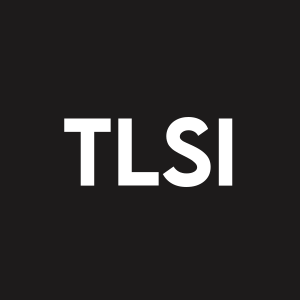TriSalus Life Sciences® Announces Publication of Pre-Clinical Data Demonstrating Improved Delivery of Embospheres® to Liver Tumors using Pressure-Enabled Drug Delivery™ (PEDD™) via the TriNav® Infusion System
Key Findings:
- Improved Tumor Penetration: PEDD achieved a 227 % increase (p=0.029) in the concentration of fluorescently labeled Embospheres within tumor tissue compared to a traditional microcatheter.
- Improved Tumor Selectivity: The tumor-to-normal (T:N) ratio rose from 2.7 for a traditional microcatheter to 4.2 when delivered by PEDD, indicating more precise tumor targeting and reduced off-target delivery.
-
Increased Peritumoral Delivery: Delivery to peritumoral regions increased by
209% (p=0.045), demonstrating PEDD's ability to overcome challenging tumor associated microenvironments.
“This study further validates the potential of TriNav using the PEDD approach to transform the treatment of liver tumors,” said Bryan F. Cox, Ph.D., Chief of Research for TriSalus. “By significantly enhancing therapeutic delivery and sparing healthy tissue, PEDD offers a promising advancement for patients whose outcomes may be limited by conventional delivery methods.”
The study was conducted using a transgenic porcine (Oncopig) liver tumor model, employing fluorescent imaging and advanced deep-learning algorithms to quantify therapeutic delivery with millimeter-scale resolution. Results showed the TriNav Infusion System using the PEDD approach markedly outperforms traditional microcatheters in delivering embolic microspheres into liver tumors.
These findings add to the growing body of clinical and real-world evidence supporting PEDD's ability to improve the delivery of therapeutic agents for patients with primary and metastatic liver cancers.
To read the full study, visit here.
About TriSalus Life Sciences
TriSalus Life Sciences® is an oncology focused medical technology business providing disruptive drug delivery technology with the goal of improving therapeutic delivery to solid tumors. The Company’s platform includes devices that utilize a proprietary drug delivery technology and a clinical stage investigational immunotherapy. The Company’s two FDA-cleared devices use its proprietary Pressure-Enabled Drug Delivery™ (PEDD™) approach to deliver a range of therapeutics: the TriNav® Infusion System for hepatic arterial infusion of liver tumors as well as other solid tumors and the Pancreatic Retrograde Venous Infusion System for pancreatic tumors. PEDD is a novel delivery approach designed to address the anatomic limitations of infusion into solid tumors. The PEDD approach modulates pressure and flow in a manner that delivers more therapeutic to the tumor and is designed to limit delivery to normal tissue, creating the potential to improve patient outcomes. Nelitolimod, the Company’s investigational immunotherapeutic candidate, is designed to improve patient outcomes by treating the immunosuppressive environment created by many tumors and which can make current immunotherapies ineffective in the liver and pancreas. Patient data generated during Pressure-Enabled Regional Immuno-Oncology™ (PERIO) clinical trials support the hypothesis that nelitolimod delivered via PEDD may have favorable immune effects within the liver and systemically. The target for nelitolimod, TLR9, is expressed across cancer types and the mechanical barriers addressed by PEDD are commonly present as well. Nelitolimod delivered by PEDD will be studied across several indications in an effort to address immune dysfunction and overcome drug delivery barriers in the liver and pancreas.
In partnership with leading cancer centers across the country – and by leveraging deep immuno-oncology expertise and inventive technology development – TriSalus is committed to advancing innovation that improves outcomes for patients. Learn more at trisaluslifesci.com and follow us on X (formerly Twitter) and LinkedIn.
Forward-Looking Statements
Certain statements made in this press release are “forward-looking statements” within the meaning of Section 27A of the Securities Act and Section 21E of the Securities Exchange Act of 1934, as amended, and are subject to the safe harbor created thereby under the Private Securities Litigation Reform Act of 1995. Forward-looking statements may be identified by the use of words such as “become,” “may,” “intend,” “will,” “expect,” “anticipate,” “believe” or other similar expressions that predict or indicate future events or trends or that are not statements of historical matters. These forward-looking statements include, but are not limited to, statements regarding TriSalus’s business, the commercial potential of its TriNav Infusion System, TriSalus’s proprietary PEDD approach, the potential therapeutic benefits and commercial potential of Nelitolimod, and TriSalus’s technologies and other products in development. Such statements are subject to certain risks and uncertainties, including, but not limited to, those inherent in the process of developing and commercializing medical devices that are safe and effective for human use, discovering, developing and commercializing medicines that are safe and effective to use as human therapeutics, and the endeavor of building a business around such medical devices and medicines.
TriSalus’s forward-looking statements also involve assumptions that, if they never materialize or prove correct, could cause its results to differ materially from those expressed or implied by such forward-looking statements. Although TriSalus’s forward-looking statements reflect the good faith judgment of its management, these statements are based only on facts and factors currently known by TriSalus. As a result, you are cautioned not to rely on these forward-looking statements. These and other risks concerning TriSalus’s products and programs are described in additional detail in TriSalus’s annual report on Form 10-K, and most recent Form 10-Q, which are on file with the Securities and Exchange Commission (the "SEC") and available at the SEC's website (www.SEC.gov). These forward-looking statements are made as of the date of this press release, and TriSalus assumes no obligation to update the forward-looking statements, or to update the reasons why actual results could differ from those projected in the forward-looking statements, except as required by law.
View source version on businesswire.com: https://www.businesswire.com/news/home/20250109060433/en/
For Media Inquiries:
Jeremy Feffer, Managing Director
LifeSci Advisors
917.749.1494
jfeffer@lifesciadvisors.com
For Investor Inquiries:
James Young
Chief Financial Officer
847.337.0655
james.young@trisaluslifesci.com
Source: TriSalus Life Sciences






